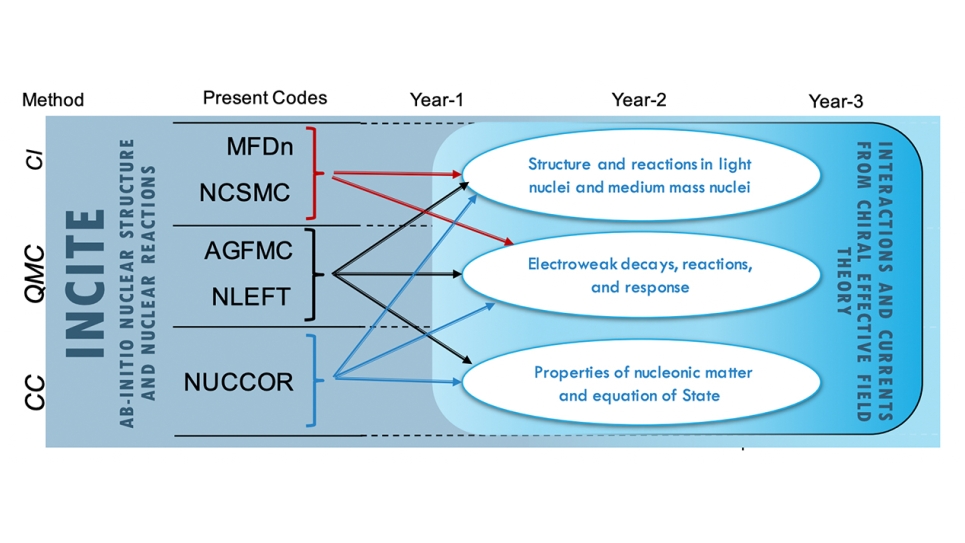PI Gaute Hagen, Oak Ridge National Laboratory
Co-PI Joseph Carlson, Los Alamos National Laboratory
Serdar Elhatisari, Karamanoglu Mehmetbey University
Stefano Gandolfi, Los Alamos National Laboratory
Gustav Jansen, Oak Ridge National Laboratory
Dean Lee, Michigan State University
Alessandro Lovato, Argonne National Laboratory
Pieter Maris, Iowa State University
Hai Ah Nam, Los Alamos National Laboratory
Petr Navrátil, TRIUMF
Thomas Papenbrock, University of Tennessee
Knoxville Saori Pastore, Los Alamos National Laboratory
Maria Piarulli, Washington University in St. Louis
James Vary, Iowa State University
Robert Wiringa, Argonne National Laboratory
